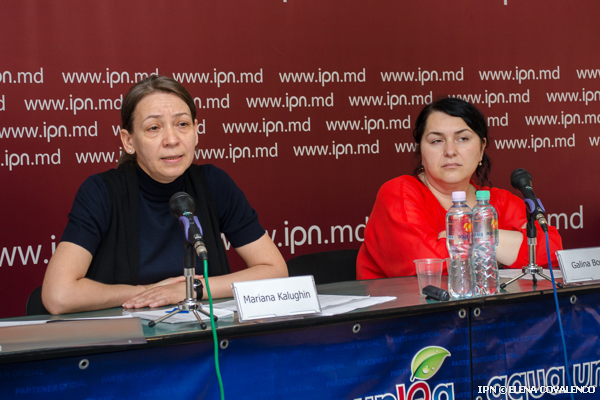The respect for the principles of transparency, participation and accountability will be insufficiently ensured if the bill on the central securities depository, proposed by a group of MPs, is adopted and implemented, said experts of the Center for the Analysis and Prevention of Corruption (CAPC), which appraised the draft law from the perspective of human rights.
CAPC expert Mariana Kalughin, in a news conference at IPN, said the legal terms and vocabulary of the bill as well as the conception concerning the licensing, regulation and supervision of the central depository need to be reviewed.
“The empowering of the National Bank of Moldova with these duties places it in a permanent state of conflict of interests because, under the provisions of the bill, the Bank will be one of the shareholders of the central depository. Moreover, in the intermediary period, the Bank will hold at least 2/3 of the shares in the central depository. Evidently, being a shareholder, the Bank will be interested in obtaining the license, but this private interest essentially endangers the public interest,” stated Mariana Kalughin.
She noted that while in a permanent state of conflict of interests, the National Bank of Moldova could be biased when performing its duties. Consequently, the mechanisms for licensing, regulating and supervising the central depository could be inefficient. Also, the expert report shows that the draft law does not sufficiently ensure the possible accountability of the central depository. Alongside the inefficient mechanisms for licensing, regulating and supervising the central depository and the insufficient transparency, this increases the vulnerability of the bill. As a result, the implementation of rights guaranteed by the Constitution may be insufficiently ensured.
It was also established that the respect for the principle of accountability is ensured inadequately. The bill does not contain clear provisions that would enable to monitor the surveillance authorities or the central depository. It also does not contain provisions that would oblige the authorities to make public the results obtained in the surveillance process.
Mariana Kalughin said the bill does not specify the sum needed for its implementation, but the money will have to be provided by the National Bank of Moldova and this is €1 million.
The common central securities depository will hold securities owned by subjects of public importance, will perform settlement and clearing operations based on the financial instruments allowed in tender contests on the regulated market and/or in the multilateral commercial system.
The appraisal was carried out within the project “Harmonization of the legislation with the international human rights standards” that is financially supported by the Civil Rights Defenders of Sweden.

